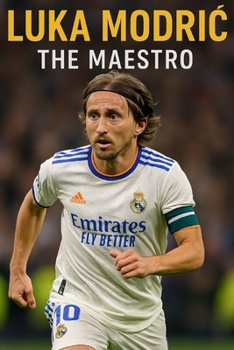Luka Modric: The Maestro
On December 3, 2018, at the Th tre du Ch telet in Paris, a moment that seemed impossible just a decade earlier became reality. Luka Modric, the diminutive Croatian midfielder, walked onto the stage to receive the Ballon d'Or, breaking a duopoly that had lasted eleven years. For the first time since 2007, neither Lionel Messi nor Cristiano Ronaldo would claim football's most prestigious individual award.
As Modric held the golden sphere aloft, his journey flashed before the eyes of those who had witnessed his remarkable ascent. From a war-torn childhood in the Croatian mountains to the pinnacle of world football, his story defied every conventional narrative about what it takes to reach the summit of the beautiful game.
"This trophy is not just mine. It belongs to all the players who probably deserved to win it and didn't in the past decade," Modric said, his voice thick with emotion. "This shows that we all can become the best with hard work, dedication, and belief. All dreams can come true."
Standing at just 5'8" and weighing no more than 65 kilograms, Modric had consistently been told he was too small, too slight, too fragile for the demands of elite football. Yet here he was, at 33 years of age, being celebrated not just as the world's best player, but as one of the greatest midfielders in the history of the game.





